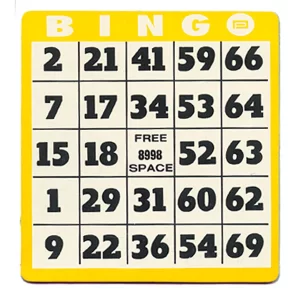The Impact of COVID-19 on the Casino Industry

Casinos suffered a total loss of 45,600 business days due to COVID-19-related closures in 2020, leading to an overall 31% decline in revenue. Nevertheless, commercial gaming revenue is expected to increase again by 2021.
During COVID-19, gambling levels were reported to be lower than prelockdown for all types of gamblers. Furthermore, those who had never gambled before reported an increase in their online wagers.
Regulatory Changes
Regulatory changes occur across the gambling industry, impacting both online and land-based casinos. They have a significant effect on an operator’s business operations as well as compliance practices.
In the United Kingdom, regulators are requiring all online gaming companies to verify players’ age and other data before accepting wagers. This helps confirm that players are who they say they are while guarding against fraud and money laundering activities.
These requirements are based on Anti Money Laundering standards and guarantee that all online gambling companies operate safely. Furthermore, they help guarantee operators have the necessary compliance standards to abide by local law enforcement.
In addition to regulatory requirements, casino employees and patrons have the option of employing behavioral measures to prevent problematic behavior or gambling addiction. These may include employee training, self-exclusion programs or alcoholic beverage restrictions. These initiatives promote responsible gaming while guaranteeing the safety of customers and staff alike.
Regulation of Online Gambling
Online gambling regulations differ across various countries and regions. In some places, it is completely legal, while others heavily restrict or outright ban certain types of gaming platforms.
In the United States, federal officials have implemented various laws that target gambling operators. One particular regulation, the Wire Act, prohibits interstate betting on sports events through wire communication facilities.
However, some states have taken a more creative approach. New Jersey, Nevada and Delaware were the first to legalize online poker and casino gambling.
Despite UIGEA’s strictures, many unlicensed internet gambling operations continue to operate in the United States. These businesses have taken various strategies to circumvent laws that prohibit gambling, such as setting up shop in jurisdictions where it is neither regulated nor taxed.
Regulation of Sports Betting
Regulation in the sports betting industry is becoming increasingly necessary as more states legalize it. To guarantee proper oversight and protection for consumers, proper guidelines need to be put in place.
Sports betting in states is subject to various regulations, such as how it’s conducted and who can open and operate a sportsbook. While these laws vary by state, they usually include restrictions related to in-state college games and events – like player prop bets – that must be observed.
The following table lists states with legal sports betting. In most cases, regulation of this activity falls under the purview of each state lottery director.
In this study, we analyzed past 30-day gambling data from online gamblers in Sweden and used the COVID-19 pandemic as a vehicle to compare those reporting sports betting during and after the crisis. Results revealed that those who reported sports betting during the COVID-19 pandemic had higher levels of problem gambling than those who didn’t; thus, this group should be targeted for prevention and intervention efforts.
Regulation of Lotteries
At the start of COVID-19, public health officials recognized it was difficult to convince parents and other adults to get vaccinated. This immobility made it challenging for health officials to protect the public from disease and potential reinfection.
In an effort to combat this attitude, several states implemented lottery programs that offered people a chance at winning prizes for getting their vaccinations. This incentive program was an integral component of public health efforts to combat COVID-19.
Researchers told PolitiFact that lotteries could be effective if they could increase awareness among adults about the significance of vaccination. But they cautioned that lottery-based incentives might stifle intrinsic motivation or diminish the significance of hard work.
The BUSM study also discovered that, even after lottery programs were implemented, vaccination rates remained roughly the same as before the initiatives. This finding is in line with research showing no significant increase in vaccinations as a result of lottery-based incentive programs.








